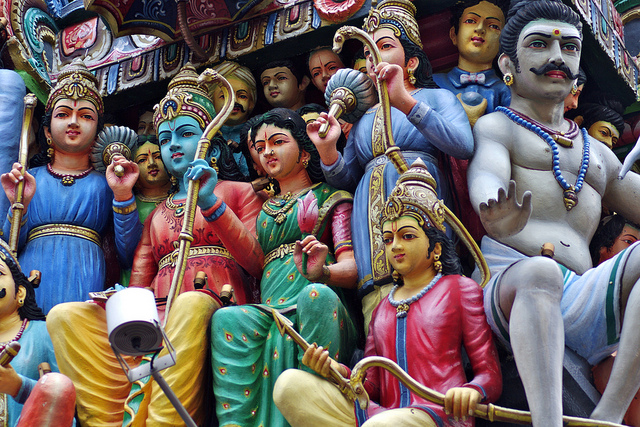Over time, that religion has changed enormously and result in modifications in traditions and techniques, but their standard foundations stay the same.
Today, Hinduism is used as a good religion, but in reality, it was not founded while the same. It is really a life-style or cultural training that people began to follow and those that followed it came into existence called Hindu. Because of this, until day, number one has had the opportunity to discover the exact year or time of source of this religion.
The other major difficulty to locate the inception of this tradition is that there is no single founder of Hinduism. For instance, Christianity was created by Jesus Christ, Buddhism was launched by Master Buddha but the exact same is incorrect for Hinduism. Since there is nobody founder, also the living of this faith cannot be associated with the beginning of his founder. Due to the above-stated facts, it is extremely difficult to learn the source of Hinduism, but nevertheless you will find few historic items of evidence available, which have been able to find out the approximate period for the living of this practice.
It will be appropriate to state that contemporary Hinduism is mainly on the basis of the Vedas. But you will find few methods and traditions practiced by the Hindus lakshmi ganesh, which resemble the Neolithic folks of India. As per the historical evidence, the Neolithic era lasted for approximately 4000 B.C. Traditions like burying or cremation of the useless bodies were accompanied by the Neolithic people. As well as that, there are other frequent practices between the Hindus and Neolithic people, like rock praise, pet lose, phallus worship, ancestral praise, and more. Therefore predicated on these facts, it could be figured the origin of Hinduism continues to be not known, but it’s believed to be a part of or adopted from the Neolithic tradition of the Indian society.
Hinduism is significantly more than an external religion of specific rituals and formalities. Hinduism is certainly a life-style; a religious code. This religious signal or Dharma is at the heart of Hinduism and governs the ethical and spiritual methods of its believers. Through the practise of Yoga proscribed in Hindu scripture adherents can find to attain union with God. As Sri Chinmoy writes: “Know Thyself.” This is what Hinduism stands for. This is actually the quintessence of Hinduism”
Along with stressing the requirement for self-discovery, yet another significant function of Hinduism is its tolerance. This really is threshold of different religions, different countries and different spiritual paths. Undoubtedly certain fanatics have dismissed this part, but one’s heart of Hinduism is notable for its inclusivity and oneness. “Unity in Range” is their goal. Hinduism as a faith is probably distinctive in not stressing the need for conversion. The Great Rishis and Saints provide sublime truth that numerous will be the trails to the goal. Sri Chinmoy states:
As well as embracing the spiritual wisdom of other cultures, there’s also great diversity within Hinduism itself. The various offices of Hinduism will attract people of different temperaments. For instance in bhakti yoga the seeker meditates and concentrates on his selected deity (Be it Sri Krishna or Maha Kali), sensation they’re nearing Lord through the non-public facet of God. Yet another route of Hinduism, primarily the philosophy of Vedanta, challenges the Impersonal facet of Lord and brings the adherent to see beyond the sphere of matter or “maya “.Still another confusion to outsiders could be the multiplicity of Gods and Goddesses within Hinduism, however the Hindu scriptures show they are but the various features and manifestations of the One Great God who embodies both finite and unlimited and at once transcends both. Hinduism fortunately sees these diverse paths.
